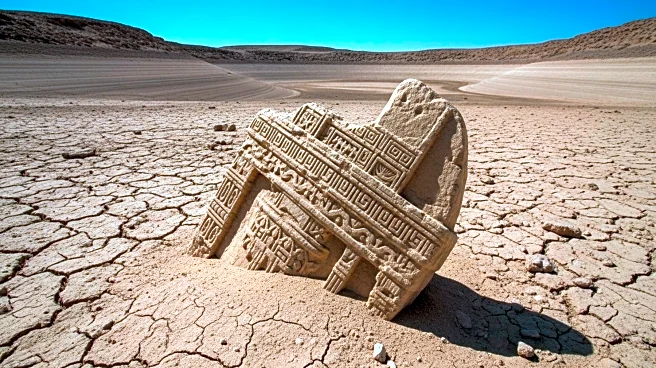What is the story about?
What's Happening?
Archaeologists in Iraq have uncovered 40 ancient tombs at the Mosul Dam reservoir in the Khanke region of Duhok province. The discovery was made possible due to a significant drop in water levels, attributed to ongoing drought conditions. The tombs, believed to be over 2,300 years old, date back to the Hellenistic or Hellenistic-Seleucid period. Bekas Brefkany, the director of antiquities in Duhok, is leading the excavation efforts. The team plans to transfer the tombs to the Duhok Museum for further study and preservation before the area is potentially submerged again. Iraq has been experiencing rising temperatures and chronic water shortages, exacerbated by upstream dams in neighboring countries.
Why It's Important?
The discovery of these ancient tombs highlights the impact of climate change on archaeological research. While droughts pose significant challenges to agriculture and electricity in Iraq, they also provide opportunities for archaeologists to uncover historical sites previously submerged. This situation underscores the dual nature of climate change effects, offering insights into ancient civilizations while simultaneously threatening modern livelihoods. The findings contribute to the understanding of Iraq's historical landscape and cultural heritage, offering potential for further archaeological exploration and preservation efforts.
What's Next?
The archaeological team will continue excavating the site to ensure the tombs are preserved and studied before water levels rise again. The ongoing drought conditions may lead to more discoveries in the region, prompting further archaeological interest and research. Additionally, Iraq's government may need to address the broader implications of climate change, including water management and international cooperation with neighboring countries to mitigate the effects of upstream dams.
















